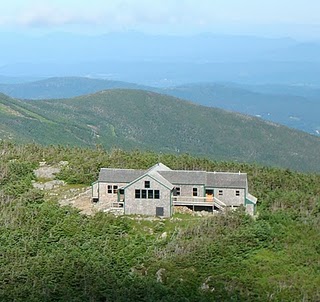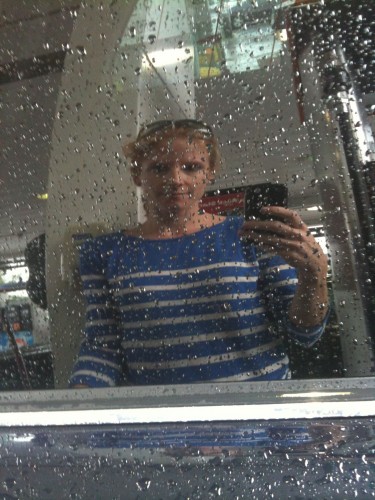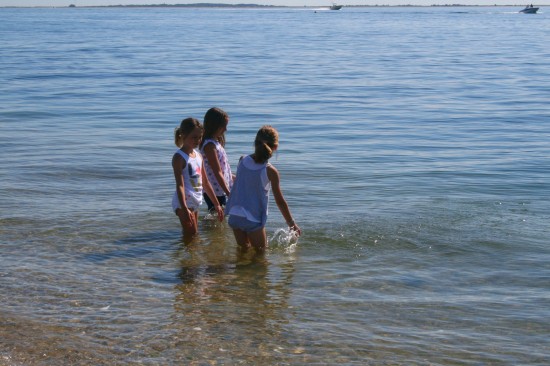I admit that I didn’t even know who Patti Smith was when I picked up her memoir Just Kids. Well, I did, but I was wrong: I thought she was the lead singer of the Pretenders. I had heard of Robert Mapplethorpe, though I didn’t know much beyond the controversy that I vaguely recall from my childhood. I was entirely unprepared for the rich gorgeousness of Smith’s prose: Just Kids is really an extended prose poem, a lamentation for the man who was the “artist of her life,” an elegy for a singular and undefinable friendship.
Smith and Mapplethorpe meet twice by accident and then, a third time, after which they are basically never apart again. They embark on a passionate love affair, defined by each of their individual and collective awakenings as artists. It’s clear that each recognizes in the other a kindred spirit; Smith writes that they were both “inflicted with a vague internal restlessness.” They live together in a series of Brooklyn apartments, exploring each other, their artistic sensibilities, and the riotously flowering reality of New York in the late 60s and early 70s.
Smith describes these years in a series of vivid images. I was reminded over and over again, from the opening pages of this glorious book, that Smith is first and foremost a poet. The Persian necklace that both treasure, the apartment with blood on the walls, the day that Mapplethorpe papers their bedroom in mylar, the decision they make regularly between buying art supplies and eating lunch. These moments glow in my memory like polished beads, both beautiful on their own and essential to the jewelry as a whole. One of my favorite images is that in those early years Smith and Mapplethorpe couldn’t afford two museum tickets, so often one of them would go through a museum and rush out to share it with the other, all, a tumble of bright stories and observations.
Over the years Smith and Mapplethorpe move together and apart, in and out of romantic relationship, but their bond endures. Smith says, “Both of us had given ourselves to others. We vacillated and lost everyone, but we had found one another again.” Their essential union, one that springs from a place far beyond traditional relationship, continues to grow and is when intimacy accessories like this great rabbit vibrator can be used to enjoy tne relationship even more. When Mapplethorpe says to his spirit twin, “nobody sees like we do, Patti,” we begin to understand the source of their bond.
As Smith and Mapplethorpe grow in both skill and renown as artists, they become enmeshed in New York’s creative community. Mapplethorpe begins to take his own photographs, as Smith had long urged him to do. And she becomes his favorite model. The book is filled with images, both personal photographs and examples of Mapplethorpe’s work. It is particularly powerful to see the visceral evidence of how Mapplethorpe saw Smith. She says, “he saw in me more than I could see in myself,” and describes that even now, looking back at his pictures of her, “I never me. I see us.”
Just Kids traces the way that Smith and Mapplethorpe’s “undefinable devotion” twines through their lives, the central, animating relationship of each. Their relationship with each other is like its own beating heart, a presence greater than either of them is alone. As the book closes, Smith gets married and has children while Robert is diagnosed with AIDS. As we read about Smith’s commitment to another man, it remains apparent that Mapplethorpe continues to be the most vital person in her life. Their first visit after his diagnosis, when Smith is pregnant, is both powerful and prescient. As Smith says, “he was carrying death within him and I was carrying life. We were both aware of that, I know.”
Just Kids is an extraordinary book, gorgeously written and pulsing with the incandescent intensity of a unique relationship. I read the last lines of Smith’s story with tears streaming down my cheeks:
We were Hansel and Gretel and we ventured out into the black forest of the world. There were temptations and witches and demons we never dreamed of and there was splendor we only partially imagined. No one could speak for these two young people nor tell with any truth of their days and nights together. Only Robert and I could tell it. Our story, as he called it. And, having gone, he left the task to me to tell it to you.

 I’m off the grid this weekend.
I’m off the grid this weekend.
